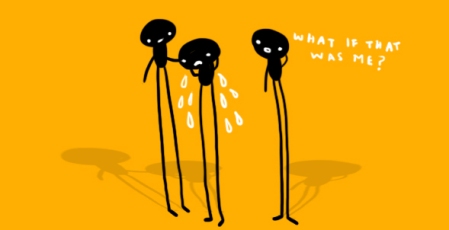September 9, 2016
What fascinates me most about human behavior is the key question of what drives a certain individual to do the things that they do; whether it be in a good or bad direction. I’ve always enjoyed observing people and coming to inferences about their behavior patterns.
I believe every single being has something that makes them tick and look forward to each day; their drive. For example, a student may look forward to their classes or assignments, a parent may look forward to watching their children develop into the adults that they are raising them to be or even someone with alcoholism looking forward to winding down after work by feeding into their sensation.
I am coming to realize now that a key aspect of my interest in Marital and Family Therapy was to understand why people continue to do the negative things that they do, knowing in their conscious minds it will hurt the people that love them, as well as themselves. I hope that one day when I do start practicing and working in this field, I will then get to the root of my clients generational problems so individuals can live a much healthier life for themselves and those in their immediate everyday lives.
September 22, 2016
Jean Jinglen said “empathy is pointing to the felt meaning in which the client is experiencing in that particular moment.” (Rogers) An example of this: A man is making negative statements about his father, and the therapist tries to throw out different emotions in which is going on within the client. The right word taps the exact meaning of the flow within the client in which they didn’t understand— the real meaning of what is going on within.
It is important to listen to people empathically. You must take yourself out the equation and listen to the feelings and emotions that are behind the words to understand what is truly being said. Then, as a therapist, you’d reflect these feelings to the client. A higher degree of empathy is the most important factor in bringing about change and learning; you must gain the trust of your client in order to improve the therapeutic relationship and process. However, this talk should be effortless and non direct. The tendency to focus on therapist response is revolting and a “technique”.
Watching Carl Roger’s lecture on Empathy real stuck out to me the importance of non-linearly listening to our clients. We must listen to the feelings and emotions behind every word uttered to understand what is truly being said. Only then can you consider yourself an empathetic listener.Without the concept of non-linear listening we learned in our Intro to Counseling course, than empathic listening is practically impossible. He defined empathy as a process, not a state. We must enter the mind of our suicidal client and truly understand what they are feeling and then reflect their own feelings into words that they haven’t been able to.
When treating a client with suicidal thoughts, I believe it is most important to grasp what has driven them to this point. Then, and only then, can you instill hope in the individual that “trouble don’t last always”. We, as therapists, must have the capability to assure our clients that the dark clouds of life won’t last forever, the sun will eventually come out and that hope alone is worth living for. I believe it is definitely easier said then done, but if you have shown true empathy to your client, I think that they will be more receptive of what you have to say in the end.
Citations:
Carl R. Rogers, Ph.D. Center for Studies of the Person La Jolla, California
(The Counseling Psychologist, 1975, Vol. 5, No. 2-10)

